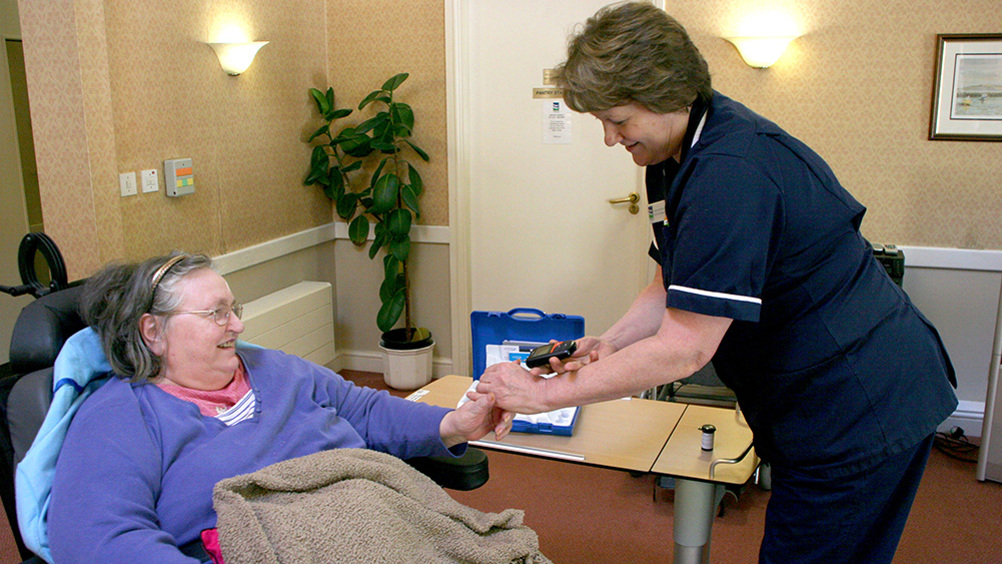References
Nurses' role in diabetes management and prevention in community care

Abstract
Diabetes care—particularly in a community setting as a form of prevention and management, is a growing requirement across England and Ireland. Self-management skills are an essential part of diabetes management and nurses in the community setting are one of the first points of care to ensure this. It is therefore imperative that nurses working within these primary and community care settings have the knowledge and skills necessary to support those in the community setting to effectively manage their condition, improve their health outcomes and their quality of life. Primary care has been tasked with providing both routine and more complex diabetes care and highlights a risk of adverse outcomes if people with diabetes are transferred to general practices without adequate support. Developing an approach for effective and efficient joint collaboration for primary care and specialists to manage the population of people with diabetes under their care is vital in its prevention and management. So how can this be achieved and what resources are required? This article will discuss current research into clinical practice and pilots which can contribute to supporting a more holistic multi-disciplinary approach to diabetes management and prevention, and hence, a provision of community based services aimed at health prevention.
Diabetes is a well known condition which can result in significant morbidity and mortality. The World Health Organisation (WHO, 2016) recommends sharing the care of diabetes between primary and specialist teams, using referrals through primary to secondary to tertiary care. Research clearly highlights that an early diagnosis, along with effective management of care can determine the clinical course and outcome of diabetes. Health services worldwide are finding it challenging to provide systematic, ongoing and skilled care due to a growing prevalence of diabetes (Worswick, 2013). Diabetes UK (2019) report that diabetes continues to be a growing health concern, with 4.7 million people in the UK known to have this condition; this number signifies an exponential increase, having doubled over the last 20 years. Mortality rates remain high due to the macrovascular complications of the condition, with over 500 diabetics dying prematurely. It is also reported by Gillet et al (2013) that self-management is often difficult due to the rising number of older people developing diabetes who already have other conditions such as dementia and arthritis. This results in community care having to administer insulin, adding pressure to already constrained services (Leading Change, 2019). Leahy et al (2015) report from The Irish LongituDinal Study on Ageing (TILDA) that type 2 diabetes is the leading cause of death and disability in Ireland, and it is well known that diabetes increases risk of heart attacks, heart failure and kidney disease, resulting in a loss of independence and early mortality. They further note that diabetes accounts for 10% expenditure in the Health Service Executive (HSE), the Irish public healthcare system. The 2015 report also highlighted diabetes being more common in men than women and that those with diabetes are more likely to be obese with low levels of physical activity and suffering with other ailments such as high cholesterol and high blood pressure. The TILDA study provided, and continues to provide, the first Irish national prevalence in diagnosed, undiagnosed and pre–diabetes in older Irish adults, shaping the future for evidence based prevention programmes.
Register now to continue reading
Thank you for visiting Community Nursing and reading some of our peer-reviewed resources for district and community nurses. To read more, please register today. You’ll enjoy the following great benefits:
What's included
-
Limited access to clinical or professional articles
-
New content and clinical newsletter updates each month

